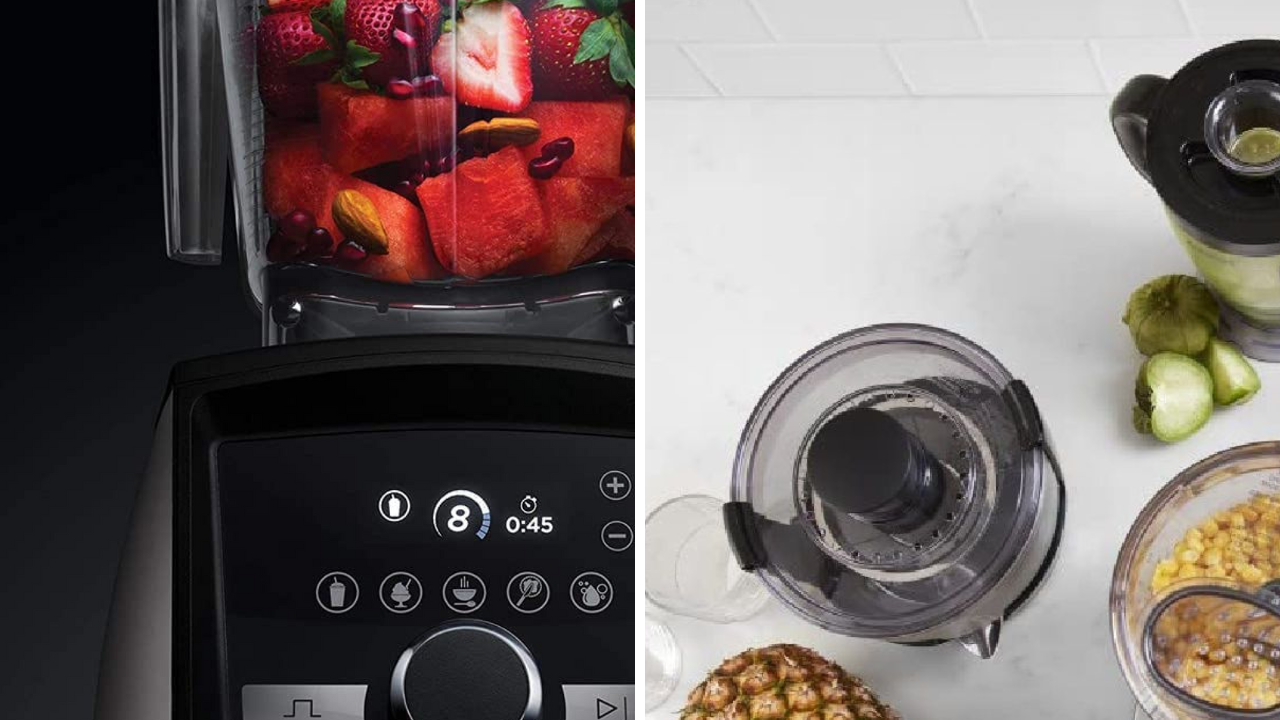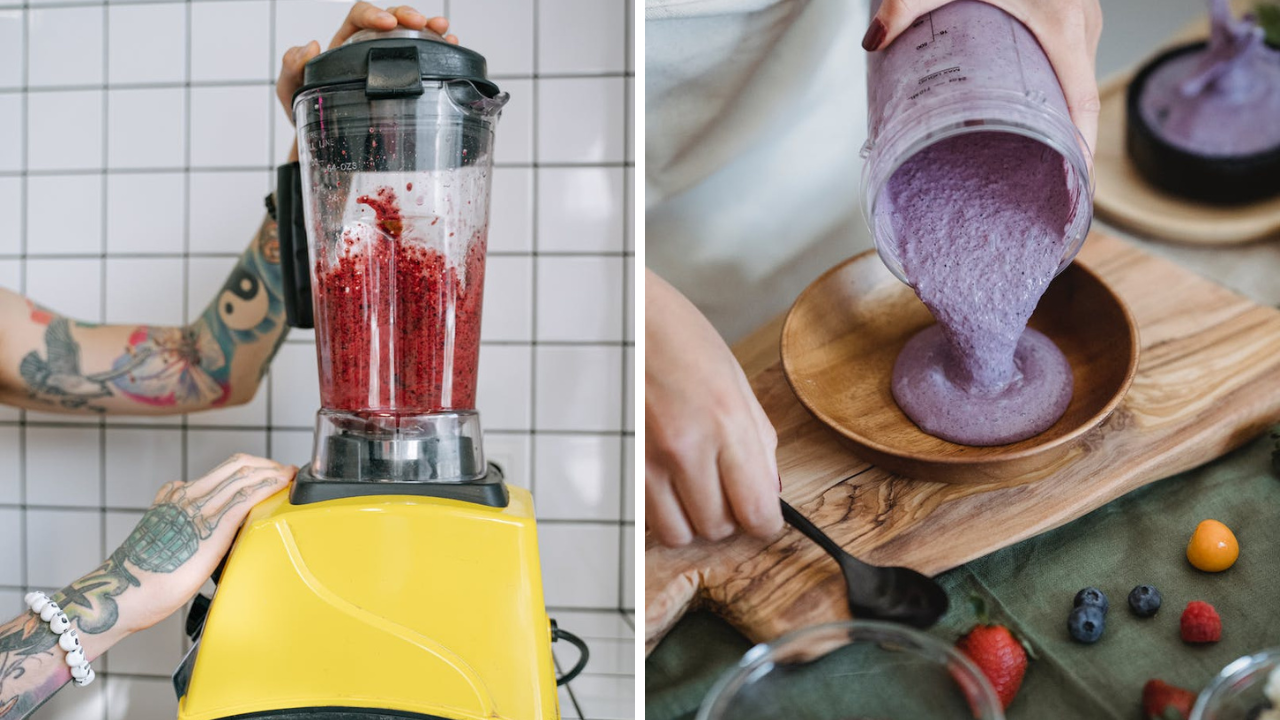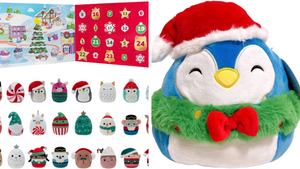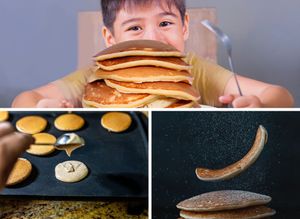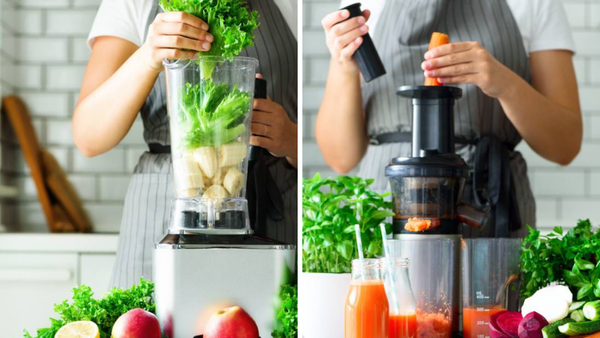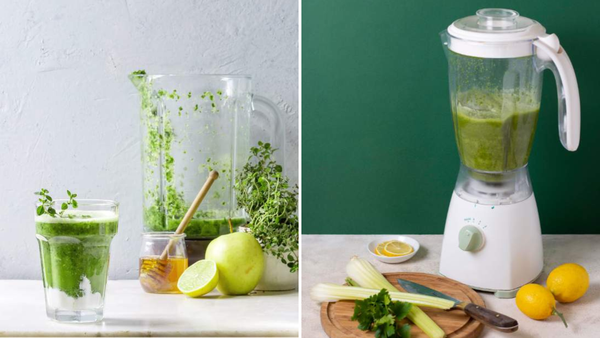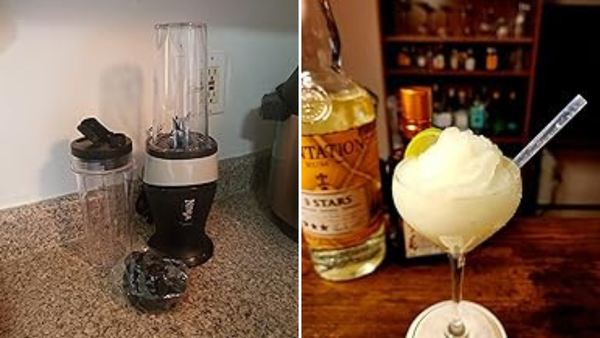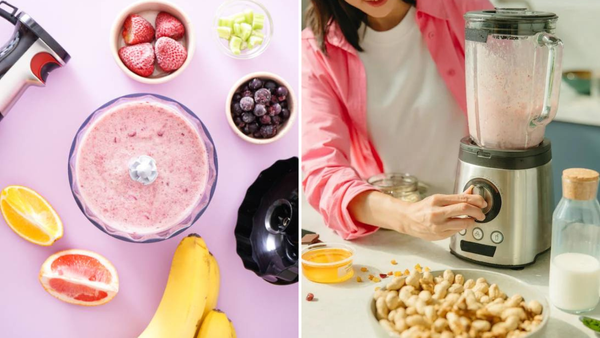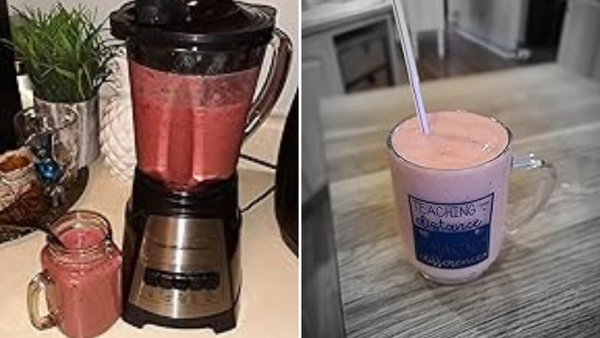Blenders and mixers are two of the most commonly used kitchen appliances. While they may look similar and perform some similar functions, they are not interchangeable.
Understanding the differences between these two appliances is crucial to making the right choice for your kitchen needs.
Blenders are designed to blend, puree, and liquefy food and liquids. They are perfect for making smoothies, soups, and sauces.
Mixers, on the other hand, are designed to mix and beat ingredients. They are perfect for making dough, whipped cream, and meringue.
While both appliances have some overlapping functions, their main features and intended uses are different.
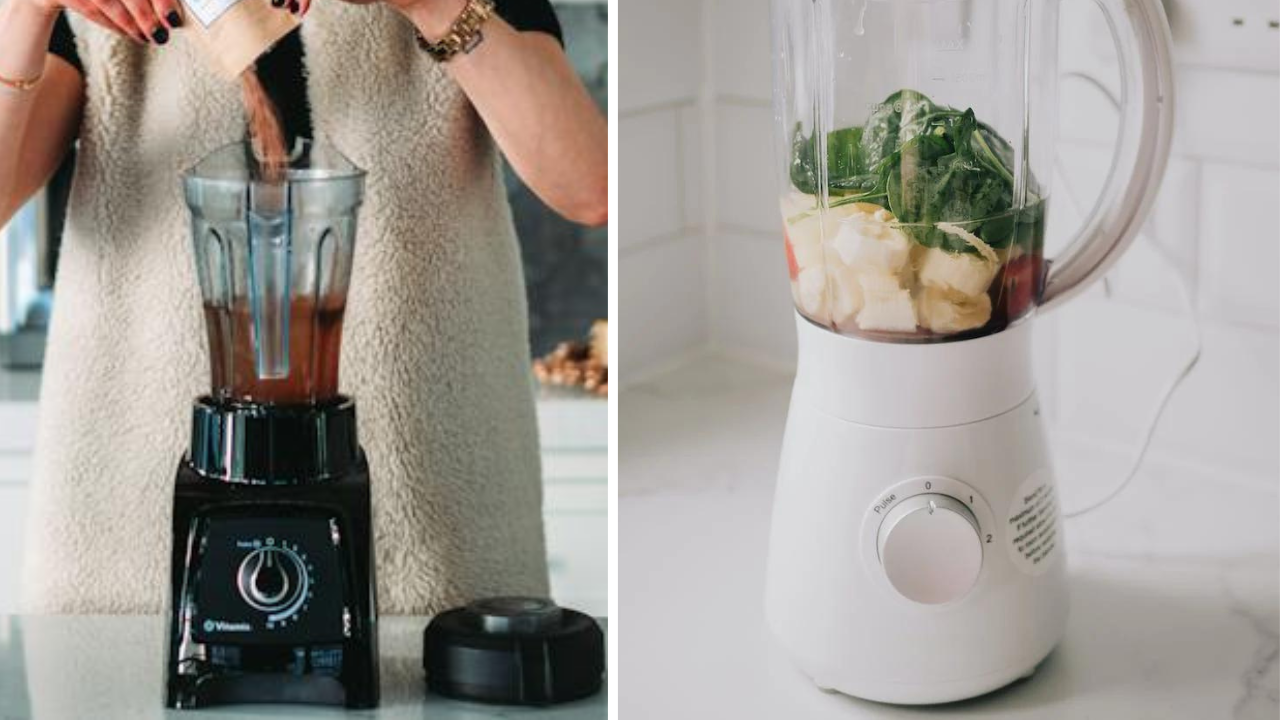
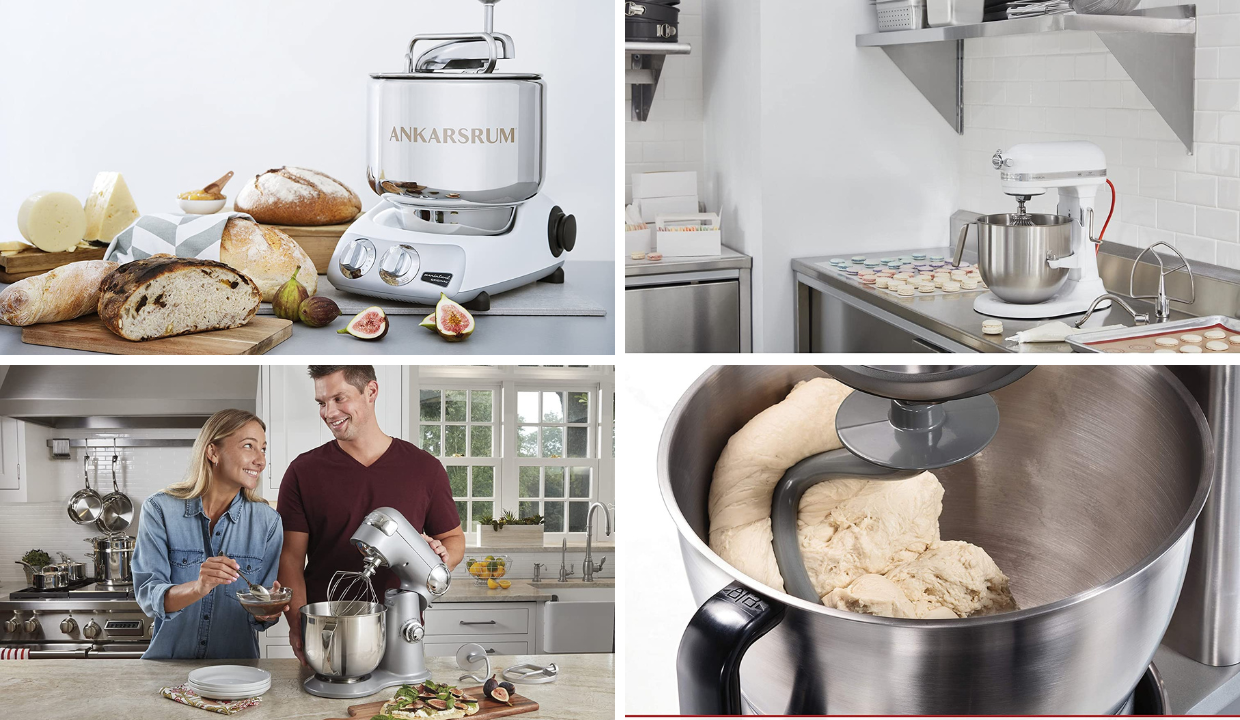
Key Takeaways
- Blenders are designed for blending, pureeing, and liquefying food and liquids, while mixers are designed for mixing and beating ingredients.
- The key features of blenders include powerful motors, different speed settings, and various blades and attachments, while the key features of mixers include different mixing attachments, powerful motors, and variable speed settings.
- When choosing between a blender and a mixer, it's important to consider your specific kitchen needs and intended uses.
Understanding The Basics
When it comes to kitchen appliances, a blender and a mixer are two of the most commonly used tools.
While they may seem similar, they serve different purposes. Understanding the basics of each appliance can help you determine which one is right for your needs.
Blender
A blender is a kitchen appliance that is used to blend, puree, or mix ingredients. It has a powerful motor and sharp blades that can crush ice, blend fruits and vegetables, and make smoothies, soups, and sauces.
Blenders come in different sizes and designs, ranging from small personal blenders to large countertop models. Some blenders also come with additional attachments, such as food processors or choppers.
Mixer
A mixer, on the other hand, is a kitchen appliance that is used to mix, whip, or beat ingredients. It has a motor and various attachments, such as a whisk, dough hook, or paddle, that can be used for different tasks.
Mixers are commonly used for baking, as they can easily mix ingredients like flour, sugar, and butter to create dough, batter, or frosting.
Mixers also come in different sizes and designs, ranging from handheld models to large stand mixers.
While blenders and mixers may seem similar, they serve different purposes in the kitchen. Blenders are ideal for making smoothies, soups, and sauces, while mixers are ideal for baking and making doughs and batters.
By understanding the basics of each appliance, you can choose the one that best suits your needs.
Key Features Of Blenders
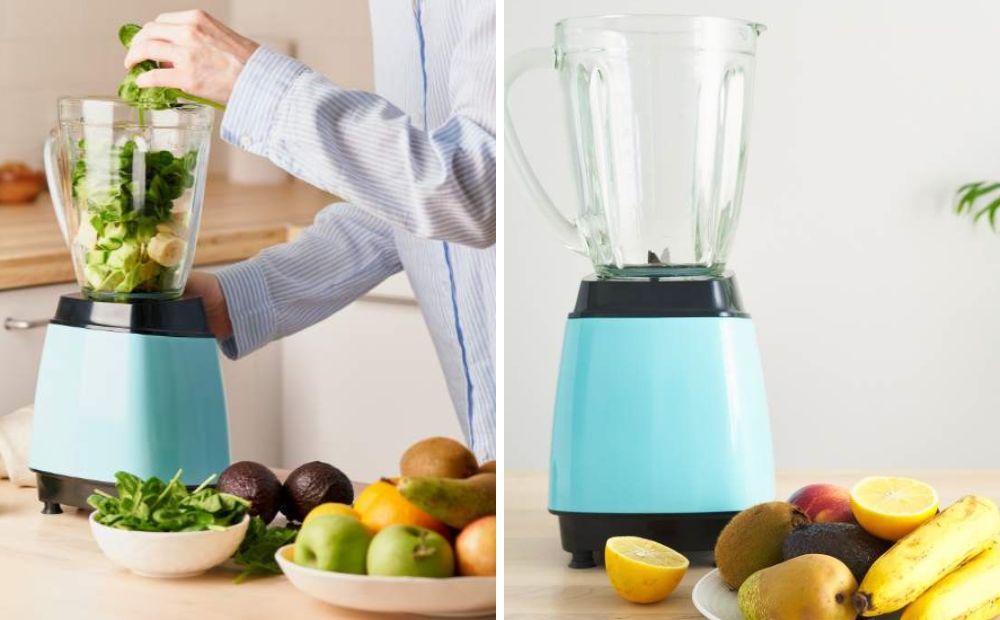
Smoothies in a blender
Blenders are a versatile kitchen appliance that can be used for a variety of tasks. Here are some of the key features of blenders:
Power And Speed
Blenders are designed to be powerful and fast. They typically have motors that range from 300 to 1500 watts and can easily blend fruits, vegetables, and ice.
The speed of the blender is also an important feature. Most models come with multiple speed settings, allowing users to adjust the speed to their liking.
This is particularly useful when blending tough ingredients or when making smoothies.
Versatility
Blenders are versatile kitchen appliances that can be used for a wide range of tasks. They can be used to make smoothies, soups, sauces, dips, and more.
Many blenders also come with additional attachments, such as food processors and choppers, which can be used to chop vegetables, grind coffee beans, and more.
Ease Of Cleaning
Another important feature of blenders is their ease of cleaning. Most blenders come with removable blades and jars that can be easily cleaned in the dishwasher. This makes cleaning up after using the blender quick and easy.
Overall, blenders are a useful kitchen appliance that can be used for a variety of tasks. They are powerful, versatile, and easy to clean, making them a great addition to any kitchen.
Key Features of Mixers
Mixers are versatile kitchen appliances that can handle a wide range of tasks. Here are some key features of mixers that make them a great addition to any kitchen:
Attachments
One of the biggest advantages of mixers is the variety of attachments available. Many mixers come with a standard set of attachments, including a mixing paddle, dough hook, and whisk.
However, there are also many additional attachments available that can expand the capabilities of the mixer. Some common attachments include:
- Meat grinder
- Pasta maker
- Ice cream maker
- Citrus juicer
- Slicer/shredder
With the right attachments, a mixer can handle tasks like grinding meat, making pasta from scratch, or even making homemade ice cream.
Power Settings
Another advantage of mixers is the ability to adjust the power settings. Most mixers come with multiple speed settings, allowing users to adjust the speed based on the task at hand.
Some mixers also have a pulse function, which can be useful for tasks like chopping nuts or pureeing vegetables.
Maintenance
Finally, mixers are generally easy to maintain. Most mixers come with dishwasher-safe attachments, making cleanup a breeze.
Additionally, many mixers have a tilt-head design, which makes it easy to access the attachments and clean the mixer itself. Some mixers also come with a cleaning brush to help remove any stubborn residue.
Overall, mixers are a versatile kitchen appliance that can handle a wide range of tasks. With the right attachments and power settings, a mixer can be a valuable addition to any kitchen.
The Main Differences
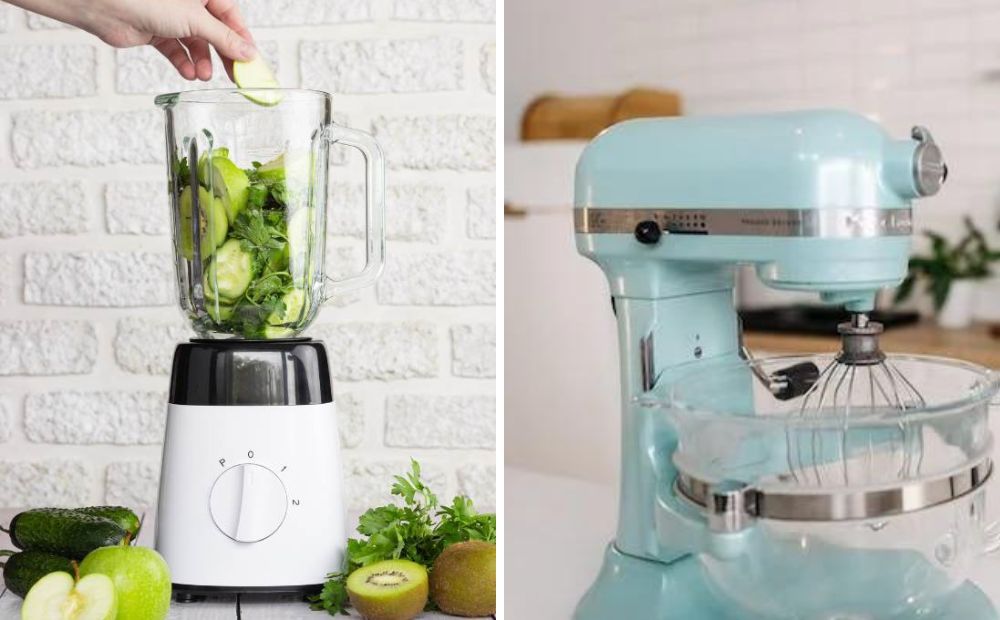
Countertop blender vs stand mixer
Blender and Mixer are two popular kitchen appliances that have similar functions but are designed differently. Here are the main differences between the two:
Functionality
Blenders are designed to blend and puree foods, while mixers are designed to mix and beat ingredients.
Blenders have sharp blades that can easily blend fruits and vegetables into smoothies, soups, and sauces.
On the other hand, mixers have attachments such as whisks and beaters that can mix and beat ingredients like eggs, cream, and butter.
Price
Blenders and mixers come in a wide range of prices, depending on their features and quality.
Generally, blenders are more affordable than mixers. A basic blender can cost as little as $20, while a basic mixer can cost around $30. However, high-end blenders and mixers can cost hundreds of dollars.
Size And Weight
Blenders and mixers also differ in their size and weight. Blenders are typically larger and heavier than mixers, as they need to accommodate the blades and motor.
Mixers, on the other hand, are smaller and lighter, as they don't need as much space for attachments.
In summary, blenders and mixers have different functionalities, price ranges, and sizes.
When choosing between the two, it's important to consider your specific needs and preferences to determine which appliance is the best fit for you.
Choosing The Right Appliance
When it comes to choosing between a blender and a mixer, it is important to consider your needs and preferences. Both appliances have their own strengths and weaknesses, and understanding these can help you make an informed decision.
For Home Cooks
For home cooks, a blender is a great choice for making smoothies, soups, and sauces.
Blenders are also ideal for crushing ice and making frozen drinks. On the other hand, mixers are better suited for baking tasks such as mixing dough, whipping cream, and beating egg whites.
A stand mixer can also be used for making pasta or grinding meat.
When choosing between a blender and mixer for home use, consider your cooking habits and the types of recipes you make most often.
If you enjoy making smoothies and soups, a blender is a must-have appliance. If you are an avid baker, a mixer is a better investment.
For Professional Chefs
For professional chefs, the choice between a blender and mixer largely depends on the type of cuisine they specialize in.
Blenders are commonly used in the preparation of smoothies, purees, and sauces.
They are also useful for making frozen cocktails and crushing ice. Mixers, on the other hand, are essential for baking tasks such as mixing dough, whipping cream, and beating egg whites.
When choosing between a blender and mixer for professional use, consider the type of cuisine you specialize in and the tasks you perform most often.
If you work in a bar or restaurant that serves frozen drinks, a blender is a must-have appliance. If you work in a bakery, a mixer is an essential tool.
In conclusion, both blenders and mixers have their own unique strengths and weaknesses.
Choosing the right appliance depends on your needs and preferences, as well as the type of cooking or baking you do.
By considering these factors, you can make an informed decision and choose the appliance that best suits your needs.
Frequently Asked Questions
Can a blender be used instead of a mixer for whipped cream?
While a blender can be used to make whipped cream, it is not the best tool for the job. Blenders tend to create a denser whipped cream, whereas mixers create a lighter and fluffier texture. Additionally, blenders can overwork the cream and cause it to turn into butter. It is recommended to use a mixer for whipped cream.
Which is better for soup: immersion blender or regular blender?
Both immersion blenders and regular blenders can be used for soup, but they have different advantages. Immersion blenders are more convenient for blending soups directly in the pot, while regular blenders can handle larger batches and create a smoother texture. It ultimately depends on personal preference and the type of soup being made.
Is blending the same as mixing?
Blending and mixing are similar processes, but they have distinct differences. Blending involves breaking down solid ingredients into a liquid or pureed form, while mixing involves combining ingredients together without necessarily breaking them down. Blenders are designed for blending, while mixers are designed for mixing.
What are the differences between a stand mixer and a blender?
Stand mixers and blenders have different functions and designs. Stand mixers are primarily used for mixing dough, batter, and other thick mixtures, while blenders are used for blending liquids and breaking down solid ingredients. Stand mixers usually have a bowl attachment and multiple mixing attachments, while blenders have a pitcher or container and a single blade.
Can a blender be used instead of a mixer for cake?
Blenders are not recommended for making cake batter. Cake batter requires a gentle mixing process, which blenders are not designed for. Additionally, blenders can overwork the batter and cause it to become tough and dense. It is recommended to use a mixer for cake batter.
Is a stick mixer the same as a blender?
A stick mixer, also known as an immersion blender, is similar to a blender in that it blends ingredients together. However, it is designed to be used directly in a pot or container, making it more convenient for blending soups and sauces. It has a smaller blade and is not as powerful as a traditional blender.

If you are in the market for a new blender, then check out our articles and top picks:
